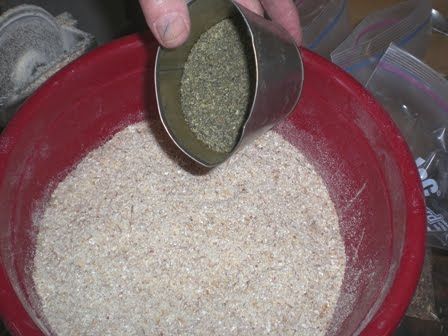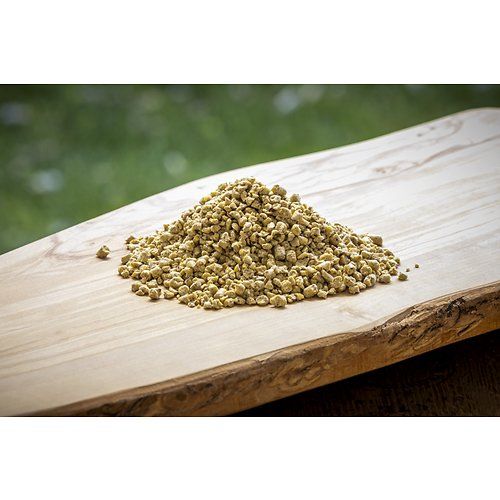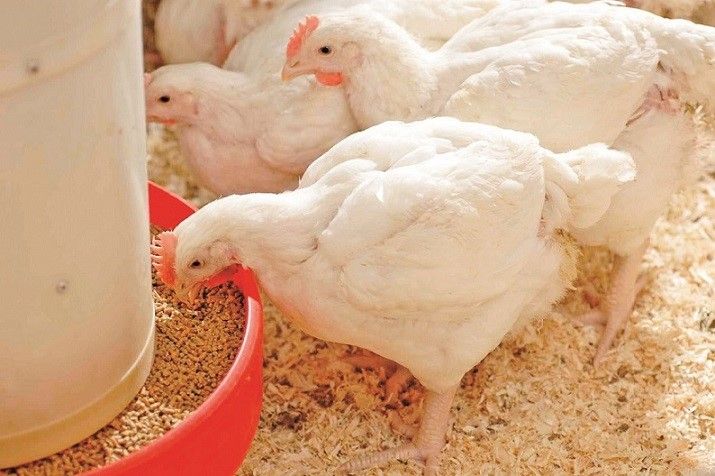Proper nutrition is the backbone of broiler chicken farming, directly influencing growth rates, feed efficiency, and overall health. Broilers require specific nutrients at different stages of their development to maximize their potential. Providing a balanced diet tailored to these needs ensures healthy birds and optimal profitability.
Starter Phase (0–2 Weeks)
In the starter phase, broiler chicks require high-protein feed to support rapid growth and development. A diet with 22–24% protein and an energy level of 2900–3000 kcal/kg is ideal. Essential vitamins, such as A, D, and E, along with minerals like calcium and phosphorus, play a crucial role in bone development and immunity. Starter feed should be in crumble or mash form to make it easy for chicks to consume.

On a similar note, at Kimd Group of Companies, we support beginner farmers by offering tailored business proposal writing services and design plans for various animal capacities. Therefore whether you’re just starting out or looking to expand, we provide the resources and expertise to help you succeed in the farming industry.
6. Predators
Grower Phase (3–5 Weeks)
During the grower phase, broilers experience rapid muscle growth, requiring a slightly reduced protein content of 20–22% but higher energy levels of 3000–3200 kcal/kg. At this stage, amino acids like lysine and methionine are crucial for tissue development. Balanced levels of calcium and phosphorus continue to support skeletal growth. Feed is usually provided in pellet form to encourage consumption and minimize wastage.

Finisher Phase (6 Weeks and Beyond)
In the finisher phase, the focus shifts to achieving the desired market weight. Broilers need high-energy feed with 18–20% protein and energy levels of 3200–3400 kcal/kg. Reduced protein content at this stage helps control feed costs while maintaining efficient weight gain. Minerals and vitamins remain important to ensure meat quality and overall health.

Importance of Water
Water is a critical nutrient for broilers and must be clean, fresh, and readily available at all times. Water intake increases with temperature and feed consumption. Ensure the water supply is free from contaminants, as poor-quality water can hinder growth and lead to diseases.

Supplementation and Additives
To enhance broiler performance, consider adding probiotics, prebiotics, and enzymes to the feed. These improve gut health and digestion. Additionally, supplementing with coccidiostats and other additives can help prevent diseases and reduce mortality.
Avoiding Feed-Related Issues
Overfeeding or underfeeding broilers can lead to health problems and lower productivity. Monitor feed consumption regularly to ensure birds are receiving adequate nutrition. Store feed properly to prevent spoilage, mold growth, and nutrient loss.

Conclusion
Meeting the nutritional requirements of broiler chickens at every stage is essential for their growth and health. By providing high-quality feed tailored to their developmental needs, farmers can achieve optimal production and profitability. A well-balanced diet, combined with proper water management and supplementation, lays the foundation for successful broiler farming.
